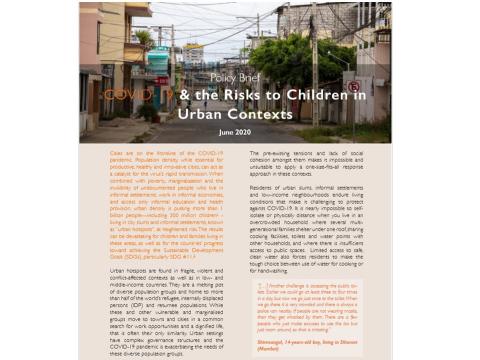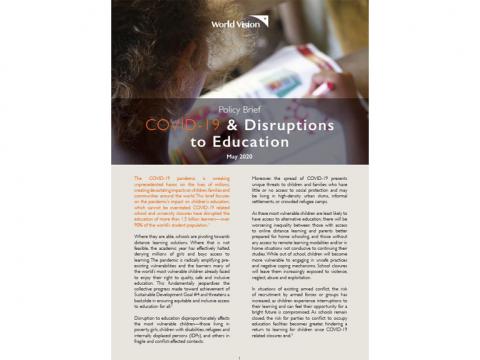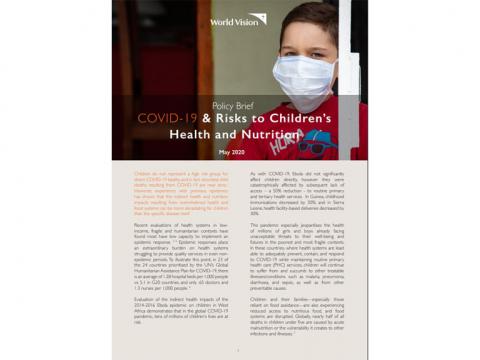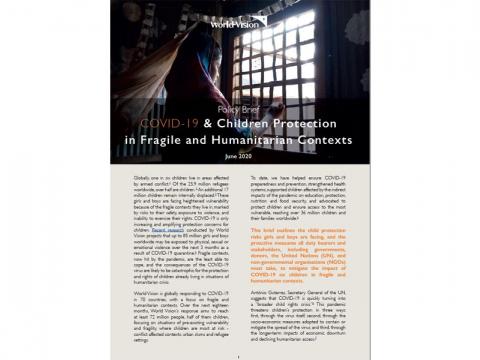COVID-19 & the Risks to Children in Urban Contexts
Download
Cities are on the frontline of the COVID-19 pandemic.
Residents of urban slums, informal settlements and low-income neighbourhoods endure living conditions that make it challenging to protect against COVID-19. It is nearly impossible to physically distance when you live in an overcrowded household where several multigenerational families shelter under one roof, sharing cooking facilities, toilets and water points with other households, and where there is insufficient access to public spaces.
Limited access to safe, clean water also forces residents to make the tough choice between use of water for cooking or for handwashing.
Population density, while essential for productive, healthy and innovative cities, can act as a catalyst for the virus’s rapid transmission.
Urban density - when combined with poverty, marginalization and the invisibility of undocumented people who live in informal settlements, work in informal economies, and access only informal education and health provision - is putting more than 1 billion people including 300 million children living in city slums and informal settlements at heightened risk.
This policy brief looks at how World Vision is responding as we continue to anticipate and experience the impacts in Urban areas, assess the needs of the most vulnerable and provides recommendations for what governments, the UN and other NGOs can do to lessen their suffering.


